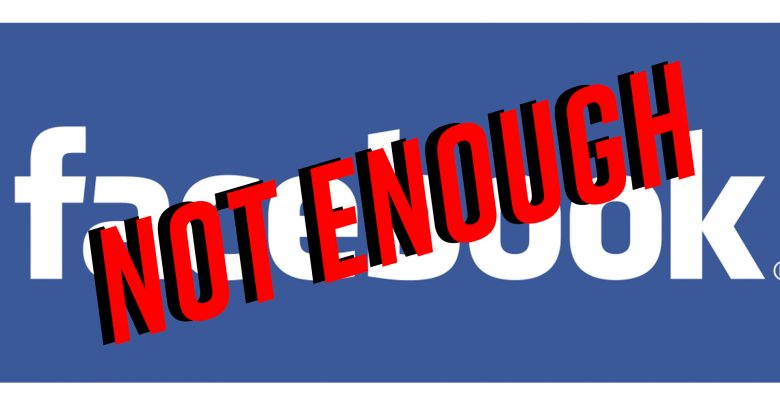Editorial: New Facebook policies can only do so much against white supremacy
 Supplied
SuppliedIt’s been a painfully long time coming.
Facebook has finally, after many complaints, decided to ban any content that explicitly mentions white nationalism and white separatism from their platform. Previously, Facebook’s policies only banned posts related to “white supremacy” from their platform; white nationalism and white separatism were not considered by Facebook to be explicitly tied to racism.
While slow to the game on this front — white nationalism has been explicitly tied to racism for a hot minute — I’m glad Facebook has finally set a hard limit on these terms. One thing they did note, however, is that they won’t be banning content with implicit white nationalist content, given the difficulty of it to detect with automated filters. This seemingly undermines a great deal of Facebook’s project, because an implicitly racist rhetoric and an evolving vocabulary are some of the most prominent tools being used by white supremacists right now.
One such tool that white supremacists have utilized extensively is self-naming. By attempting to control the labels used to describe them, white supremacists have been actively trying to shift the language around their ideology in order to appear harmless and reasonable. Such a shift allows them to creep their way into public debate, where they absolutely shouldn’t be.
Let’s examine the genealogy of terms white supremacists have used. Figures such as Richard Spencer and David Duke shifted to using the term “white nationalism” to describe their ideology, attempting to draw false equivalencies between black nationalist movements like the Black Panther Party and hate groups like Identity Evropa and the Council of Conservative Citizens. Through this, they tried to mask the inherent violence of their ideology with talk of the creation of a white ethnostate and the preservation of the white race and its “culture” in the face of immigration.
This name change seemed to work in some ways, fooling well-meaning liberals who clung to the idea of “hearing both sides” and “rational discussion” into hearing out racist ideologues. After all, in the context of diversity, multiculturalism, and focusing on minority rights, there’s some twisted logic that can make a “white minority” sound like a legitimate concern.
This, however, changed with the murder of Heather Heyer at the Charlottesville Unite the Right Rally. Due to the violence and hatred that showed its face there — as well as the continued efforts of antiracism activists — “white nationalism” has become widely recognized as what it truly is: a euphemism for white supremacy.
New labels are emerging to replace white nationalism, though. Many white supremacists are starting to call themselves “race realists,” attempting to evoke the sense that their beliefs are backed up by science and anecdotal trends. One prime example of this is Stefan Molyneux, who regularly espouses racist pseudoscience about correlations between “biological” race and IQ.
To anyone who has a brain, this change is painfully ironic. In an attempt to sanitize white supremacist ideas, the term “race realism” literally calls back to the thoroughly debunked practice of race science. This irony is often lost on many, though. Even if we’ve debunked race science, the allure of things cloaked in scientific language — even if they wrongfully mobilize scientific terms and methodologies — still exists in our society. Attaching claims to scientific data, even if that data is misused and the claims are hateful, gives them a false air of legitimacy, and this is what white supremacists using terms like “race realism” are hoping to accomplish.
It’s important to recognize that deceptive self-naming practices aren’t limited to white supremacists. For example, there exists transphobic feminists, typically referred to as trans-exclusionary radical feminists (TERFs), who wrongfully biologize gender and see trans people — particularly trans women — as dangerous to women’s existence. Many TERFs consider TERF to be a slur, so much so that it has become a meme in some social justice circles. TERFs instead refer to themselves as “gender critical” — once again, like white supremacists, attempting to sanitize the violence latent in their ideas.
So while Facebook seems to be taking white nationalism and white supremacy more seriously, they won’t be able to fully tackle those problems. Implicitly racist rhetoric and constantly-shifting labels will always outrun specific policy changes; adding a new word to the ban list every time one comes up is only doable for while.
If Facebook can’t do it, then we need to do it. As Facebook users, and as responsible political actors, we should be calling out and challenging white supremacist rhetoric wherever it turns up. And in order to do this, we must educate ourselves and each other about what white supremacists are doing, and how they’re trying to get away with hate.
Banning of explicit hate can help, but it goes so much deeper than what appears on the surface.




